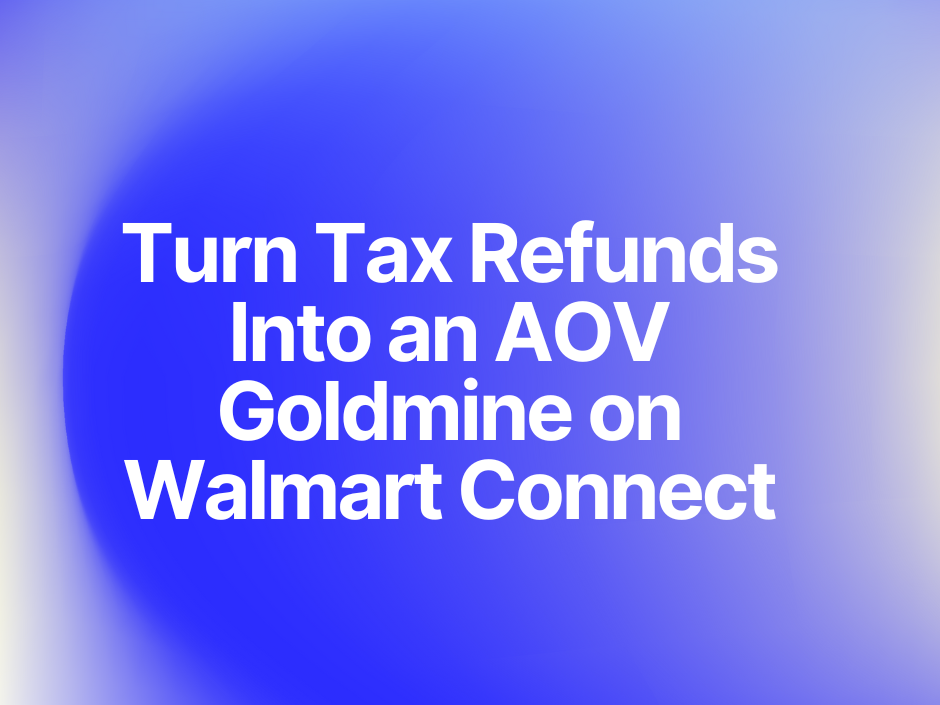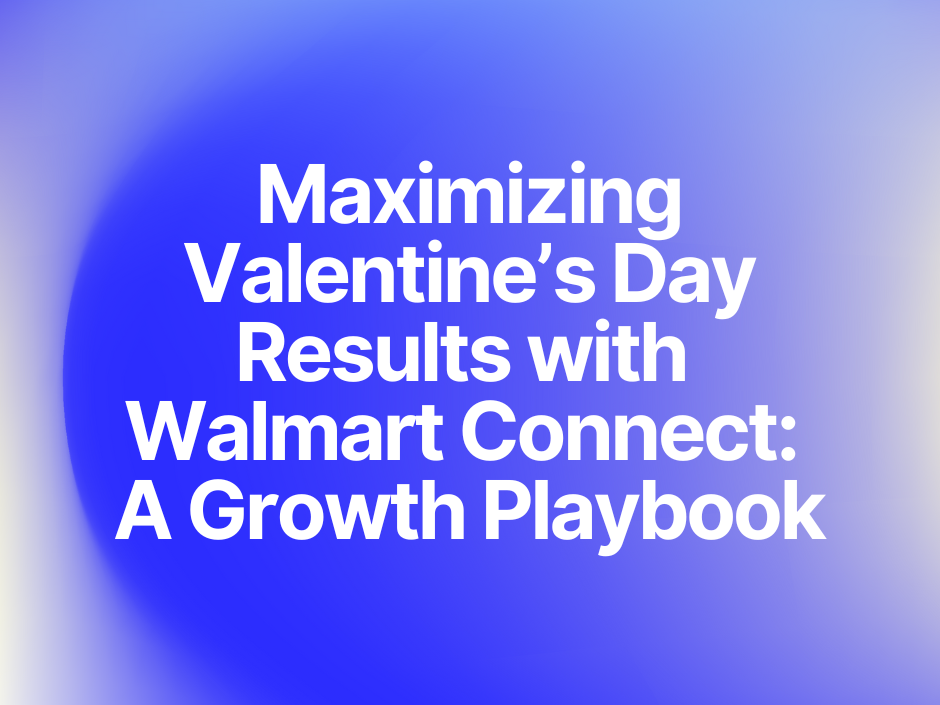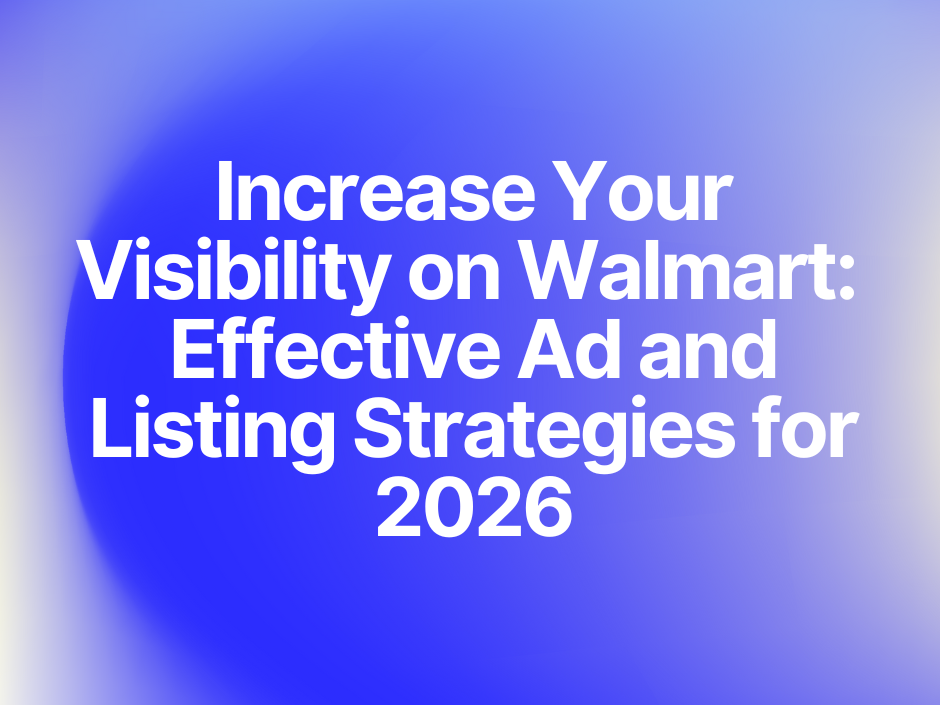Shopping Isn’t What It Used to Be
Gone are the days when consumers relied solely on traditional ads, in-store displays, or even search engines to discover products. Today, the path to purchase is dynamic, deeply social, and increasingly influenced by trusted creators, viral content, and peer recommendations.
The Rise of the Social-First Shopper
A decade ago, the customer journey began with a Google search or a stroll through the store. Now, it begins on TikTok, Instagram, or YouTube, where discovery is driven by short-form videos, viral trends, and authentic product reviews.
According to a 2023 study by LTK and Northwestern University's Retail Analytics Council, nearly 60% of consumers rely on influencer recommendations when making purchase decisions, often before they even search for the product themselves.
This isn’t just about quick clicks or impulse buys. It’s about trust. Shoppers crave authenticity, and influencers, whether household names or niche creators, are the new gatekeepers of consumer confidence. A single video from the right voice can fast-track someone from awareness to purchase in seconds.
The question isn’t “Should I buy this?”
It’s “Where can I get this?”
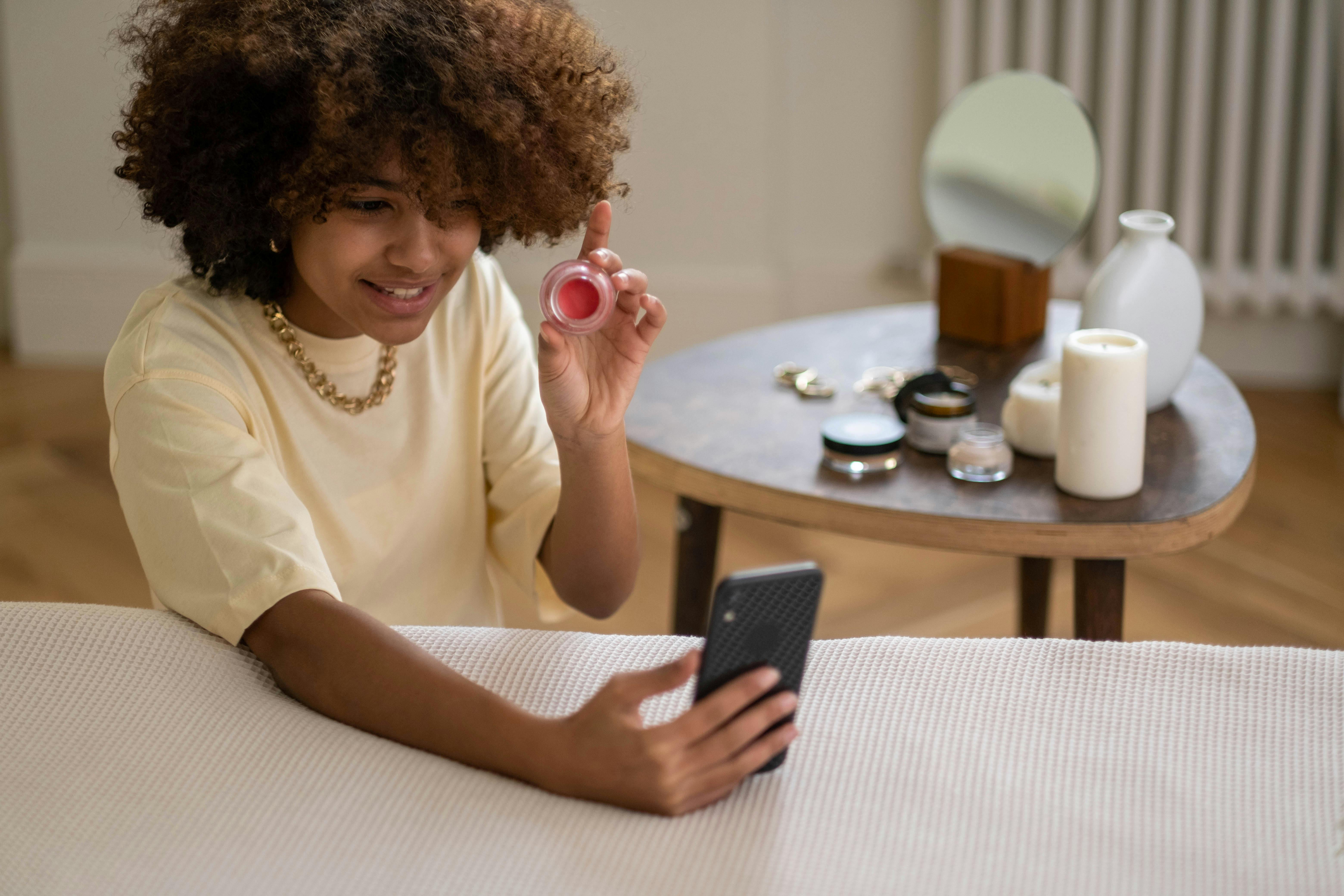
The Role of Data in the Influence Era
For brands, the rise of social-first shopping opens powerful doors, but only if backed by data. Understanding what actually moves the needle means going beyond likes and impressions.
Brands need clarity on:
- Which creators drive conversions
- What content formats outperform
- Which platforms fuel the best ROI
- How product discovery on social translates into sales
It’s about connecting content to commerce. That requires real-time performance tracking, full-funnel visibility, and the ability to optimize campaigns based on outcomes, not vanity metrics.
When “Sold Out” Tells a Story
We’ve all seen it: a $10 gadget goes viral, and 48 hours later, it’s gone from every shelf. That “Sold Out” tag is the story of social influence in action.
These moments aren’t rare anymore. Today’s shopper doesn’t wait for brands to present products. They discover them through creators, communities, and viral trends, and act immediately.
From kitchen hacks to budget-friendly fashion, some of the best-selling Walmart items today owe their success to influencer-driven buzz before traditional advertising even begins.
.png)
Dashna Boost: The Bridge Between Influence & Commerce
At SellCord, we’ve always focused on helping brands grow smarter and faster on Walmart. That’s why we created Dashna Boost, powered by Mavely’s industry-leading social commerce network.
Dashna Boost helps Walmart sellers tap into the power of influence with:
- Affiliate Marketing – Set SKU-level commissions to reward everyday creators who drive real sales.
- Influencer Campaigns – Run targeted campaigns with vetted, high-affinity influencers.
- Performance Tracking & Optimization – Get SKU-level reports, refine commission structures, and maximize ROI.
- Walmart-Ready Solutions – Unlock access to Walmart’s co-funded campaigns and attribution tools for measurable results.
Together, Dashna Boost + Mavely’s 120,000+ influencer network close the loop between discovery and purchase, giving brands:
- Creator performance visibility
- Product-level sales impact
- True ROI tracking from feed to checkout
This isn’t just a marketing strategy, it’s the new foundation of commerce.
Get Started Now! 👉 Check all the details here
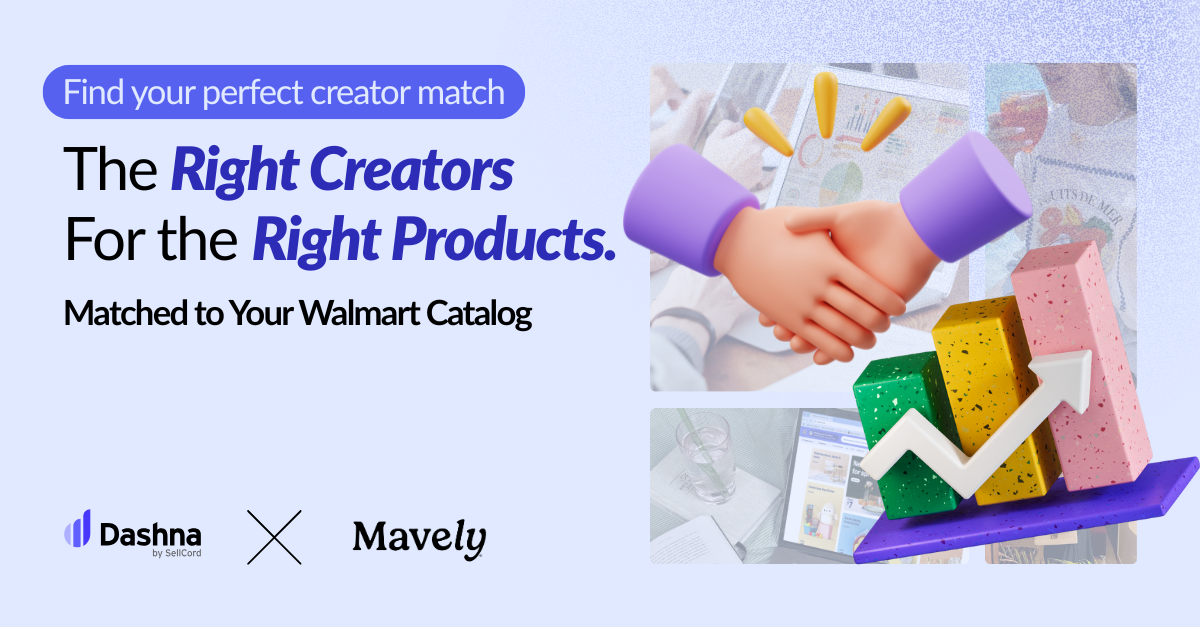
The customer journey has been rewritten. Today, discovery starts with creators, and conversion happens in clicks. The brands that will win tomorrow are already building influencer-powered strategies today.
With Dashna Boost, Walmart sellers can transform influence into measurable, scalable growth.
Q&A
Q: Why is influencer-driven commerce more effective than traditional ads?
A: Because it’s based on authentic recommendations that build trust, not just exposure.
Q: How does Dashna Boost track performance?
A: It provides SKU-level insights and attribution data, so you see exactly which creators and campaigns drive sales.
Q: Is Dashna Boost only for big brands?
A: No, it’s designed for any Walmart seller who wants to leverage influencer marketing, from small startups to enterprise brands.

.png)

